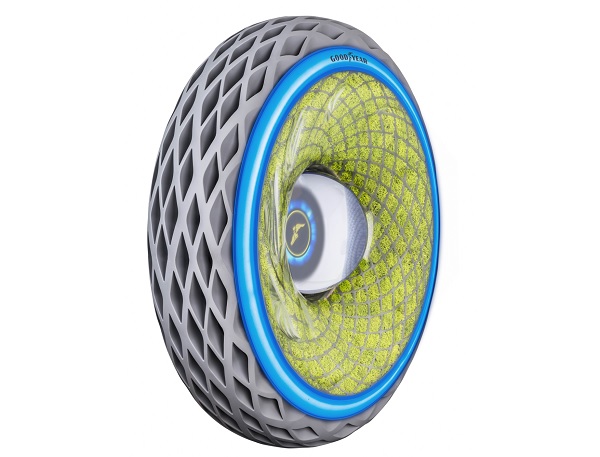
The concept, named Oxygene, has a unique structure that features living moss growing within the sidewall. This open structure and the tyre’s smart tread design absorb and circulate moisture and water from the road surface, allowing photosynthesis to occur and therefore releasing oxygen into the air.
Inspired by the principles of the circular economy, with emphasis on reducing material waste, emissions, and energy loss, Goodyear’s Oxygene concept is designed to integrate seamlessly into future cityscapes, featuring several performance solutions:
- Recycling Worn Tyres: Oxygene features a non-pneumatic construction that is 3D-printed with rubber powder from recycled tyres. The lightweight, shock-absorbing structure provides a long-lasting, puncture-free solution intended to extend the life of the tyre and minimize service issues, delivering worry-free mobility. Additional safety is ensured by the tyre’s open structure, which improves wet grip by helping absorb water from the tread.
- Generating its Own Electricity: Oxygene harvests the energy generated during photosynthesis to power its embedded electronics, including onboard sensors, an artificial intelligence processing unit, and a customizable light strip in the tyre’s sidewall that switches colors, warning both road users and pedestrians of upcoming maneuvers, such as lane changes or braking.
- Communicating at the Speed of Light: Oxygene uses a visible light communications system, or LiFi, for high-capacity mobile connectivity at the speed of light. LiFi enables the tyre to connect to the Internet of Things, allowing vehicle-to-vehicle (V2V) and vehicle-to-infrastructure (V2I) data exchange, which is critical to smart mobility management systems.








